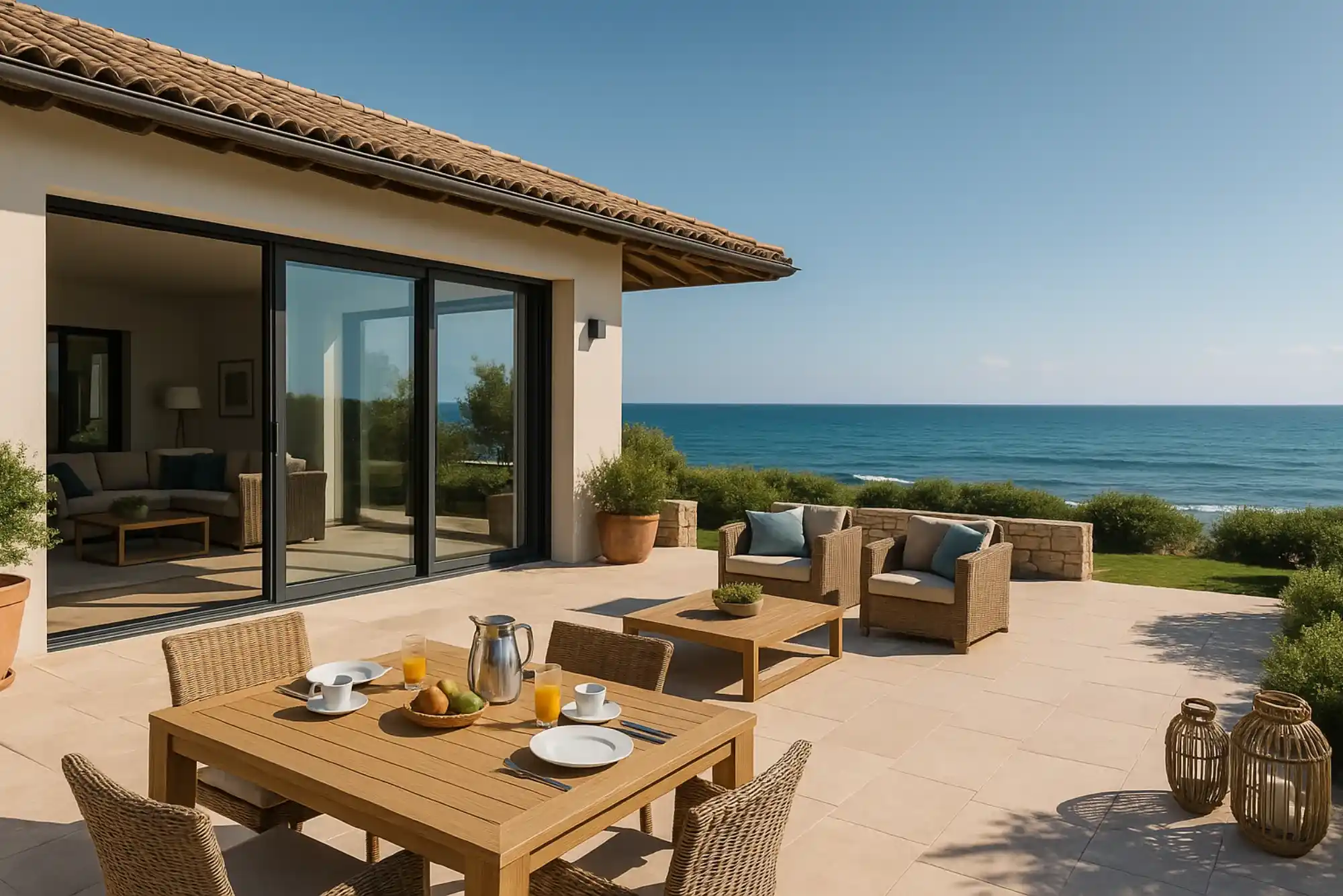Investing in a holiday home is both an emotional and financial commitment. You want a property that not only provides memorable getaways but also generates healthy returns when you’re not using it. In recent years, coastal destinations with modern amenities have surged in popularity, and REEF 998 has emerged as a notable contender. But is REEF 998 truly suitable for holiday home investment? In this article, I’ll share my insights—backed by market data, practical considerations, and real-world examples—to help you decide if this development aligns with your investment goals.
Understanding the Appeal of REEF 998
When you first hear about REEF 998, what stands out is its prime beachfront location. Nestled along a stretch of golden sand and clear waters, this development seamlessly blends luxury living with laid-back coastal vibes. As someone who’s spent countless weekends and holidays exploring different resorts and holiday homes, I can tell you that the right location makes all the difference. Here, you’ll enjoy panoramic ocean views, direct beach access, and easy proximity to charming seaside towns.
The architecture of REEF 998 is another draw. It features contemporary design elements—large floor-to-ceiling windows, open-plan living areas, and natural finishes—that echo high-end resorts. International buyers have gravitated toward such designs, seeking properties that feel like a permanent vacation. Plus, the developers have invested in lush landscaping and communal facilities like infinity pools, fitness centers, and landscaped gardens, which elevate the guest experience.
Key Investment Drivers at REEF 998
One of the most important metrics for holiday home investors is rental yield. Developments like REEF 998 typically partner with premium property management companies to handle short-term rentals. In my experience, locations with strong tourism demand and professional management can achieve annual rental yields of 6–8%, sometimes even higher during peak seasons. You can check these figures and more details on REEF 998’s official site, which provides comprehensive information and booking previews.
Seasonality also plays a role. Coastal areas often see a surge in visitors during summer and holiday periods. If you plan your bookings strategically—opening for long stays in shoulder seasons and offering premium weekend rates during peak months—you can smooth out income throughout the year. In comparable developments I’ve studied, owners who actively manage pricing and availability enjoy steadier cash flows and avoid long vacancy spells.
Location Advantages and Connectivity
Beyond the beach, REEF 998 benefits from solid transport links. A 15-minute drive takes you to the nearest airport, with regular flights from major hubs. Highways connect the region to nearby cities in less than two hours, and public transport options are improving, making it easier for renters to explore local towns. As a holiday home owner myself, I value easy arrival and departure for guests—it reduces friction and encourages repeat bookings.
Local infrastructure is robust. You’ll find supermarkets, farm-to-table restaurants, and artisanal shops within a short drive. Cultural attractions—such as museums, galleries, and weekly markets—add to the destination’s charm. I recall staying in a holiday home where quick access to local bakeries and seaside cafes made mornings more delightful, and that convenience directly influenced how often I returned to the property.
Real-World Example: High Season vs. Off-Season Returns
Let’s look at a hypothetical scenario. Imagine a two-bedroom villa at REEF 998, purchased for $350,000. During high season, nightly rates average $300, and occupancy hits 80% over three peak months (June–August). That generates roughly $21,600 in revenue for the season. In the off-season, if you adjust rates to $150 per night with a 50% occupancy rate across the remaining nine months, you add about $20,475. Combined, annual gross revenue approximates $42,075, yielding just over 12% on purchase price before expenses.
After factoring in management fees (20%), maintenance, utilities, and periodic upgrades—let’s estimate 30% of gross revenue—net income would be around $29,450. That translates to an 8.4% net yield, which is competitive compared to many urban buy-to-let markets. Of course, you’ll need to verify current rates and fees with the on-site management team, but this model illustrates how REEF 998 could deliver solid financial performance.
Financing Options and Tax Considerations
Securing a mortgage on a holiday home often requires higher down payments—usually 20–30%—and slightly higher interest rates than primary residences. Lenders typically assess your personal income and existing liabilities, so it’s crucial to maintain strong credit and a stable debt-to-income ratio. In my own financing journey, locking in a fixed-rate mortgage provided predictability, shielding me from sudden rate hikes.
Tax regulations vary by jurisdiction. Many countries allow you to offset rental expenses—mortgage interest, insurance, and maintenance—against rental income. Consult a local tax advisor to understand deductible items and any foreign owner restrictions. Some regions also impose occupancy taxes or require licensing for short-term rentals. Research these factors early to avoid surprises.
Practical Tips for Maximizing Your REEF 998 Investment
Begin with market research: Review comparable holiday home listings and seasonal rates in the area. Platforms like Airbnb and VRBO offer real-time data on occupancy and pricing trends.
Partner with a reliable property manager: A responsive, professional team can handle marketing, guest communication, cleaning, and maintenance. Good management directly impacts guest satisfaction and reviews, which in turn influence future bookings.
Invest in quality furnishings: Thoughtful interior design—with comfortable beds, well-equipped kitchens, and modern amenities—encourages 5-star reviews. I once upgraded to high-thread-count linens and smart home controls, and saw my occupancy rise by 15% within six months.
Stay compliant: Ensure you adhere to all local regulations regarding licenses, insurance, and tax filings. Non-compliance can lead to fines or rental bans.
Balancing Personal Use and Rental Income
One advantage of REEF 998 is its owner-use flexibility. You can block out weeks for personal vacations and still rent out the rest of the year. To optimize, plan your personal stays during shoulder seasons when rental demand dips. This way, you don’t sacrifice peak-season income. Many investors I know take this approach, which keeps both their family happy and the rental income strong.
Long-Term Value and Appreciation Potential
Coastal real estate tends to appreciate, especially when the region sees infrastructure improvements—new marinas, upgraded marinas, or enhanced tourist facilities. If developers follow through on promised enhancements, property values at REEF 998 could climb over time. For example, in nearby coastal villages where a new transit line opened in 2018, holiday home prices increased by 20% within two years. Monitoring local development plans can give you early insight into appreciation trajectories.
Reinvesting some rental profits into minor upgrades—fresh paint, new appliances, landscaping—keeps the property competitive. Consistent reviews of market comparables ensure you’re not underpricing and that your home remains an attractive option.
Potential Drawbacks and Risk Mitigation
No investment is without risk. Weather events—like storms—can temporarily deter visitors, and economic downturns may reduce travel budgets. To mitigate, confirm adequate insurance coverage, including loss-of-rental and weather-related damage. Establish a contingency fund for unexpected repairs. Diversify your rental marketing channels to avoid reliance on a single platform. Maintaining open communication with neighbors and local authorities also helps ensure you’re part of a supportive community network.
Conclusion
After weighing the location, design, financial projections, and practical considerations, it’s clear that REEF 998 offers strong potential for holiday home investment. With competitive rental yields, attractive refinancing options, and promising appreciation, it stands out among beachfront developments. Of course, thorough due diligence—consulting with real estate agents, financial advisors, and tax professionals—is essential before committing. But if you’re seeking a balance of personal enjoyment and solid returns, REEF 998 deserves a close look.
















